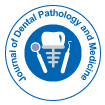开放获取期刊获得更多读者和引用
700 种期刊 和 15,000,000 名读者 每份期刊 获得 25,000 多名读者
抽象的
Assessing Delay in Care Caused by Oral Antineoplastic Medications
Cinzia Salmina
The advent of oral antineoplastic medications has brought remarkable convenience to cancer treatment, allowing patients to manage their therapy at home. However, this convenience comes with the potential for delayed care, which can significantly impact treatment outcomes. This abstract provides a concise overview of the complexities surrounding the assessment of delay in care caused by oral antineoplastic medications.
Oral antineoplastic drugs represent a paradigm shift in cancer treatment, offering patients the autonomy to self-administer their medication outside the traditional clinical setting. While this approach enhances the quality of life for patients, it introduces a unique set of challenges. Delay in care can manifest through missed doses, inconsistent adherence, and a lack of adequate monitoring, potentially leading to disease progression, increased toxicity, and reduced survival rates.
The date the prescription was written and received by the patient was determined. A retrospective review was completed to gather additional information, including prescribed medication, indication, insurance coverage, patient assistance program use, dispensing pharmacy, and prior authorization requirements. The data was analyzed through multivariate statistical analysis and used to identify risk factors that may significantly increase the time to medication receipt. A total of 58 patients were included in the study. A median of 8 days elapsed between when the medication was prescribed and when it was received by the patient. Medication prescribed, absence of a Risk Evaluation Mitigation Strategies (REMS) program, and insurance type are factors that increased time to medication receipt.

 English
English  Spanish
Spanish  Russian
Russian  German
German  French
French  Japanese
Japanese  Portuguese
Portuguese  Hindi
Hindi